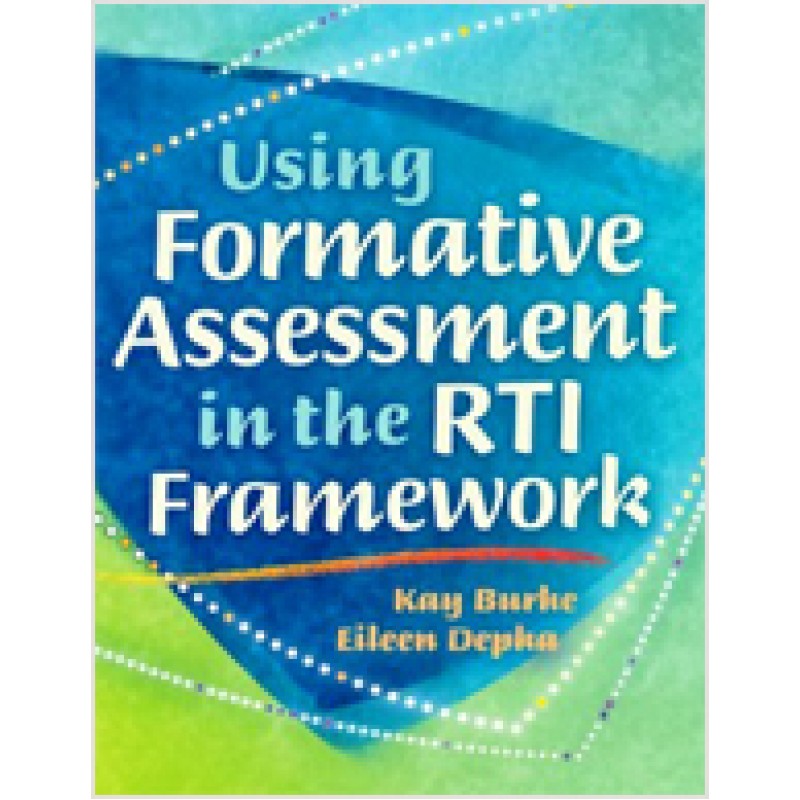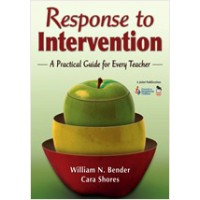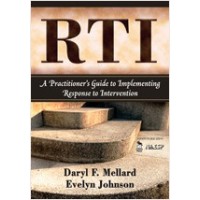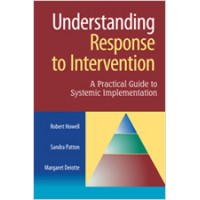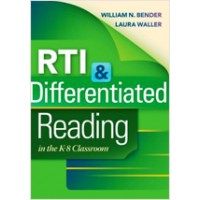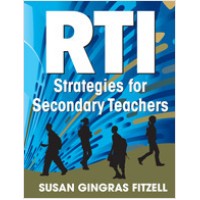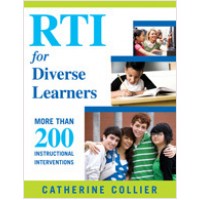Using Formative Assessment in the RTI Framework, May/2011
| Author(s) | Kay Burke, Eileen Depka |
| ISBN10 | 1935249746 |
| ISBN13 | 9781935249740 |
| Format | Paperback |
| Pages | 144 |
| Year Publish | 2011 May |
Synopsis
Understand the basics of RTI and its connection to formative assessment, and adjust instruction to increase levels of student understanding and achievement with this practical guide.
RTI and formative assessment have the potential to positively impact student achievement. Understand the basics of RTI and its connection to formative assessment, and base instructional decisions on the results of effective formative assessment practices. Learn how to adjust instruction to increase levels of student understanding and achievement with the information, tools, and techniques presented in this practical guide.
- Acquire numerous examples of formative assessment tools, most of which can be used for any subject.
- Gain tools that help students self-assess their social skills and behavior patterns so they become more aware of how their actions affect their academic achievement.
- Find a four-step, systematic approach to data collection and analysis plus a variety of data collection and display methods.
About The Authors:
Kay Burke, PhD, a consultant, has been a high school teacher, a department chair, a dean of students, a mentor, an administrator, a college instructor, and a member of the Southern Regional Council of the College Board.
Dr. Burke was named DeKalb County Georgia Teacher of the Year and was a semifinalist for Georgia Teacher of the Year. She was also a STAR Teacher for Georgia and received an award for Excellence in Teaching presented by President Ronald Reagan and Secretary of Education Terrence Bell in 1984. She received the Saint Xavier University (Illinois) Certificate of Excellence in 1994 for her work as the director of the field-based master’s program.
Dr. Burke has written and edited numerous books in the areas of standards-based teaching and learning, balanced assessment, formative assessment in the RTI framework, classroom management, mentoring, and portfolios. She is author of the best-selling books How to Assess Authentic Learning, What to Do With the Kid Who…, The Portfolio Connection, From Standards to Rubrics in Six Steps (a finalist for the Association of Educational Publishers Distinguished Achievement Award in 2007), and From Standards to Rubrics in Six Steps (a 2010 finalist for the AEP Distinguished Achievement Award).
She earned certification in administration and supervision from the University of Georgia, a doctorate in communicative arts from Georgia State University, an educational specialist degree from Emory University, a master of education from the University of Central Florida, and a bachelor of arts from Florida Atlantic University.
Eileen Depka is assistant superintendent of educational services for the School District of Elmbrook in Brookfield, Wisconsin. Eileen supervises and coordinates curriculum, instruction, assessment, special education, educational technology, and continuous improvement efforts. In addition, she provides professional development for K–12 administrators and teachers. Eileen has taught all subjects at the elementary and middle levels, and she has also taught graduate-level courses. As a consultant, she has worked with schools and districts across the country, focusing on topics including assessment, grading and reporting, rubrics, continuous improvement, and data collection. Since 1998, Eileen has presented at the local, state, and national levels.
Eileen has been featured in and consulted on educational videos, and she has written online courses. She is the author of Designing Rubrics for Mathematics, Designing Assessment for Mathematics, and The Data Guidebook for Teachers and Leaders: Tools for Continuous Improvement. Eileen is a board member for the Wisconsin Association for Supervision and Curriculum Development and a member of the Association of Supervision and Curriculum Development and National Staff Development Council.
Eileen earned a bachelor’s degree in elementary education from the University of Wisconsin and a master’s degree in education from Cardinal Stritch University. She is pursuing a PhD.

